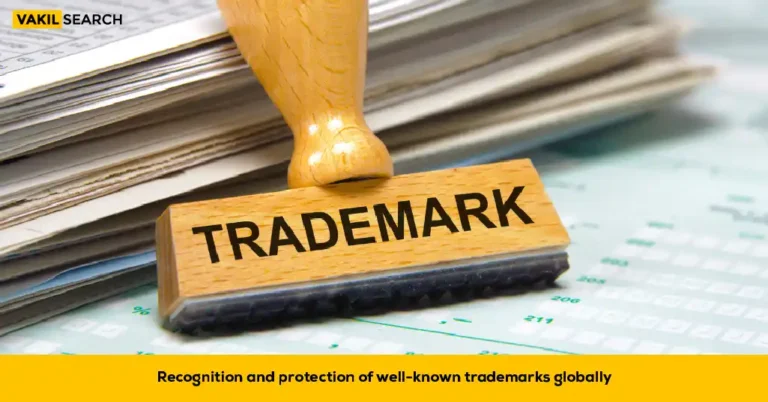Avoid the risks and consequences of trademark infringement. Read our guide on maintaining and enforcing your trademark to ensure your business's success.
In today’s competitive business landscape, building a strong foundation for your brand is essential for long-term success and growth. Trademarks play a pivotal role in establishing and protecting your brand identity, ensuring that your business stands out in the market and retains its unique position. In this comprehensive guide, we will explore the importance of trademark registration, gain a thorough understanding of the trademark registration process, and provide valuable insights on creating a strong and effective trademark for your business.
Why Trademark Registration?
- Brand Protection: Trademark registration provides legal protection to your brand name, logo, or slogan, safeguarding it from unauthorized use and imitation by competitors.
- Exclusive Rights: By registering your trademark, you obtain exclusive rights to use the mark in connection with your goods or services, preventing others from using similar marks in the same industry.
- Consumer Recognition: A registered trademark instills confidence and trust in consumers, making them more likely to choose your products or services over competitors.
- Asset Value: A strong and recognizable trademark becomes a valuable asset for your business, contributing to its overall goodwill and market value.
Understanding the Trademark Registration Process
The trademark registration process involves several key steps, each of which is crucial for securing legal protection for your brand:
- Trademark Search: Conduct a comprehensive search to ensure that the proposed trademark is unique and does not conflict with existing trademarks.
- Application Preparation: Prepare the trademark application, including the necessary documents and details of the goods or services associated with the mark.
- Filing the Application: Submit the trademark application to the appropriate trademark office or authority, adhering to their specific guidelines.
- Examination: The trademark office will examine the application for compliance with legal requirements and potential conflicts with existing marks.
- Publication: If the application passes the examination, it will be published in the official gazette or journal for public opposition.
- Opposition Period: During the opposition period, other parties may raise objections to the registration. Resolving any opposition is crucial for successful registration.
- Registration and Renewal: If no opposition is raised or successfully resolved, the trademark will be registered, and you can renew its registration periodically.
Choosing and Registering a Strong Trademark
- Choosing a strong trademark is important for the success of your business.
- A strong trademark should be distinctive, memorable, and easy to recognize.
- Avoid using generic or descriptive words in your trademark.
- A good trademark should distinguish your products or services from others.
- Registering your trademark legally protects it.
- In India, trademarks are registered with the Trademark Registry.
- To register your trademark, file an application with the Trademark Registry.
- The Trademark Registry will review your application and search for uniqueness.
- Your trademark application must include a clear representation of the trademark
- a description of the goods or services, and the owner’s name and address.
Trademark Infringement: Risks and Consequences
- Trademark infringement is when someone uses your registered trademark without your permission on related goods/services.
- It can harm your business, causing loss of income, reputation, and customers.
- To protect your trademark and defend your rights, take proactive measures.
- If you suspect infringement, send a cease and desist letter to demand they stop.
- If they don’t comply, legal action may be necessary.
- Legal action can include filing a lawsuit, seeking an injunction, or compensation for losses.
International Trademark Considerations
- Safeguarding your trademark globally is important in today’s market.
- Protect your trademark in countries where you sell or where your rivals operate.
- The Madrid System lets you file one application for multiple countries.
- International trademark protection needs a separate application for each country.
- Submitting separate applications is complex and requires knowledge of local laws.
- It’s best to work with a trademark attorney for international registration.
Maintaining and Protecting Your Trademark
- After receiving a registered trademark, it is important to protect it
- Trademark protection requires ongoing efforts to maintain it.
- Monitor the market for infringement
- Renew your trademark registration
- Use your trademark consistently with your products or services
- Failing to protect your trademark could result in losing your rights and the ability to take legal action against infringers.
Enforcing Your Trademark Rights
- Enforce your legal rights to keep your trademark valuable and protect your company.
- Prosecute possible violators and guard against unauthorized use of your trademark.
- Check the market often for possible infringement and take quick action if needed.
- Send letters to stop infringement, sue those who infringe, and work with customs officers to stop fake goods from being imported.
- Create policies and procedures to correctly use and protect your trademark.
- Teach your employees and partners about the importance of using and protecting your trademark.
FAQs
What Does a Strong Trademark Mean?
A strong trademark is distinctive, memorable, and capable of identifying the source of goods or services. It should stand out in the market and avoid any likelihood of confusion with existing trademarks.
What Is Trademark in Business?
In business, a trademark is a recognizable sign, symbol, or expression used to identify and distinguish the products or services of one business from others in the market.
Why Is a Trademark Important to a Business?
A trademark is vital to a business as it protects the brand's identity, builds consumer trust, prevents competitors from using similar marks, and establishes brand recognition in the market.
How Do You Make a Good Trademark?
Creating a good trademark involves several key elements: It should be unique and not similar to existing trademarks in your industry. It must be easy to remember and pronounce. It should reflect the essence of your brand and resonate with your target audience. Avoid generic or descriptive terms, as they may be difficult to register as trademarks.
Conclusion
Establishing a strong business foundation for trademarks is a strategic move that sets your brand apart and provides valuable protection in the competitive market. Trademark registration offers exclusive rights, brand recognition, and consumer trust, contributing to the long-term success of your business. By understanding the trademark registration process, conducting thorough searches, and creating a strong and distinctive trademark, entrepreneurs and businesses can fortify their brand identity and build a reputable presence in the marketplace. As businesses continue to evolve and innovate, a well-protected trademark serves as a powerful asset, reinforcing brand loyalty and propelling success in the dynamic world of commerce. Embrace the value of trademarks as a fundamental pillar of your business strategy, and cultivate a lasting and impactful brand identity that resonates with consumers and stands the test of time.










